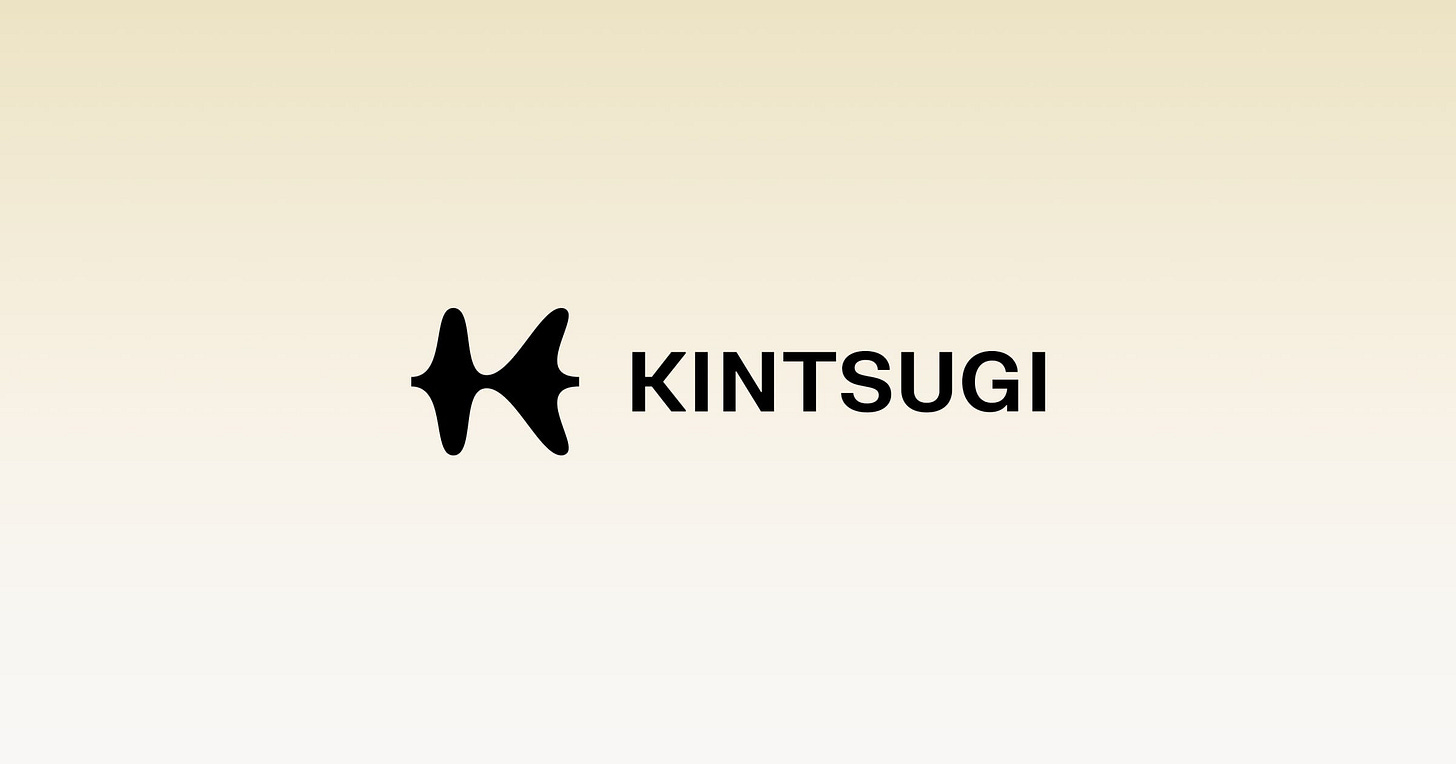🚀 Innovating Mental Health with Kintsugi Health: A Leap Forward with AI
Our conversation with the Chief Medical Office of Kintsugi Health - Prentice Tom
💡The Core of Kintsugi: Transforming Mental Health Diagnosis
Founder & CEO: Grace Chang (previously in technical leadership roles at several Bay Area startups including a machine learning company specialized in signal processing for authentication)
Chief Medical Officer: Prentice Tom, MD (previously the Executive Vice President and CIO of Vituity, also served as President of Galen Inpatient Physicians and on the faculty of Stanford Medical School)


Funding: Series A
Founded in: 2019
Kintsugi Health introduces a revolutionary AI-supported tool that analyzes voice biomarkers to screen for depression and anxiety within mere seconds, boasting the same accuracy as traditional clinician-administered surveys.
This tool delves into how sounds are produced, breaking down voice into elemental phonemes and examining their spectral and prosodic features. It's a leap from art to science in mental health diagnosis, offering a quantifiable, non-invasive method that promises scalability and precision.
“Kintsugi” is the art of repairing fractures in ceramics with gold. What once was broken becomes stronger and more beautiful. We bring this philosophy to strengthening mental wellness infrastructures, so instead of falling through the cracks, more people can embrace their flaws and find beauty in their growth.
🌍 A Universal Solution in a Virtual Era that Lacks Sufficient Mental Health Support
As healthcare steadily transitions online, Kintsugi's tool stands out for its non-invasive, virtual-friendly approach. It's designed to be language and content-agnostic, functioning across various languages and cultures. This universality underscores the tool's potential in democratizing mental health care, ensuring broader, more inclusive access.
Efficient: In about 20 to 30 seconds of any conversation, it can screen for depression and anxiety with the same accuracy as a clinician-administered PHQ-9 or General Anxiety Disorder-7 survey.
Universal: Kintsugi’s algorithm doesn’t focus on the content of the conversation, it focuses on biometrics behind the 100+ muscle groups during sound creation. The tool also works with languages like Japanese, Spanish, English, and many of the European languages. So what's really interesting is that changes in the neuromotor manifestations of sound creation are universal, regardless of ethnicity, language, or education, and we can analyze based on the pathophysiology of their mental health.
📜 Current Stage of Mental Health in America
Only about 4% of all primary care patients are screened for depression.
We all sit somewhere on the mental health spectrum but we don’t have a tool to detect and track at an earlier stage.
A 2022 CDC study showed that almost 60% of high school girls had to take at least one week off in 2021 because they looked at their lives as hopeless.
The risk of developing mental health conditions appears to only be increasing. The elderly have a much higher rate of depression than the general population. For the youth, it's estimated now that one-third of all youth in the United States have anxiety disorder.
#1 Problem with mental health: Accessibility:
Lack of access to appropriate treatment and intervention at every level.
There are only psychiatrists in less than 50% of all counties in the United States.
We tend to only identify those who are extremely ill because we need to make sure that they have adequate resources. And therefore, we eliminate this whole spectrum of other individuals that could benefit from some type of intervention.
We need to look at how we can create alternative treatments and interventions for individuals at an earlier stage.
The tool is highly scalable, reproducible, and quantifiable, and creates a paradigm shift in how we're able to evaluate mental illness, because mental health, of all the areas of medicine, is the most art.
🗄️ Data & algorithm - Kintsugi’s Core Competencies
Kintsugi has obtained the largest annotated database in the world for analyzing voice. Against these standard screening tests, the PHQ-9 and GAD-7, we had over 40,000 unique samples, which is very large.
To obtain the data, Kintsugi released the tool worldwide through a consumer app, and it was released to 250 cities globally. The results, of people doing the PHQ-9 were just personal to them (leads to more truthful answers).
🚧 Overcoming Challenges as a Healthcare Startup
The unique challenge of the long cycle for healthcare startups.
Healthcare startups have a difficult road as the world is very near-term-centric. Investors look at a return on investment and are expecting returns within a very short period.
Healthcare and the technology adoption curve is very flat at the start. “And so I think Kansugi, like many health tech companies, has to figure out how we create the ability to weather that long runway and how we find the support that we need, and the people that recognize the long-term return on investment and value proposition? Because there are so few people who have that Warren Buffett mindset of long, long-term value. It's a difficult road going a little bit deeper into AI and mental health.”


